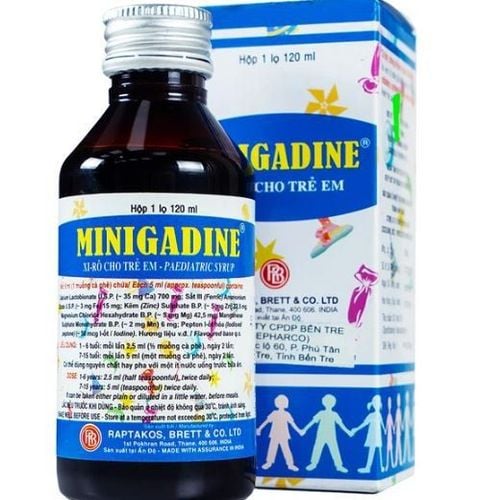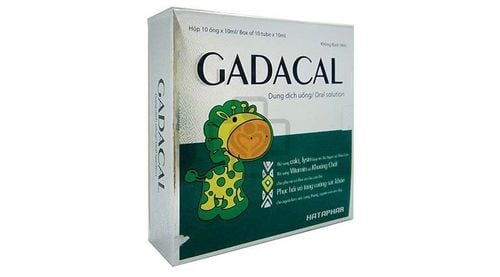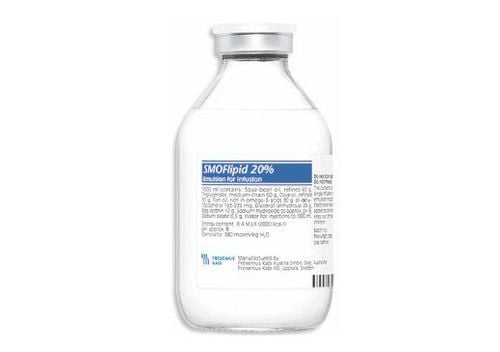This is an automatically translated article.
Zinc is an important micronutrient that helps maintain human health and nutrition. Zinc deficiency can lead to some digestive, metabolic, neurological disorders... Besides, zinc deficiency also causes skin and eye damage in children.
1. Causes of zinc deficiency in children
Zinc participates in the action of more than 300 enzymes in important biological reactions in the body. Including digestive enzymes, especially enzymes necessary for the synthesis of proteins, nucleic acids as well as the synthesis, secretion and action of many important hormones such as GH, IGF-1, insulin, thymulin, testosterone.
Therefore, zinc is necessary for gene transcription, reproduction, cell replication, normal growth and development, and maintenance of the function of many organs, including the immune system, digestion, and the immune system. metabolism, endocrine, brain, bone, muscle, sexual maturation as well as antioxidant.
Causes of zinc deficiency in children are usually due to:
Increased need for zinc due to: Premature babies, low birth weight, children with rickets, periods of rapid growth. Reduced zinc supply: Due to an unbalanced child's diet, lack of animal protein or fasting, an austere diet, or prolonged parenteral nutrition. Poor digestion or poor absorption: Common in chronic diarrhea, short bowel syndrome, inflammatory bowel disease, treatment of prolonged iron deficiency. Zinc loss: Children lose zinc due to acute diarrhea, trauma, burns, fractures, bleeding, sweating, children with nephrotic syndrome, hemolytic anemia, surgery, drainage or partial leakage. upper intestine...
2. Zinc deficiency can cause skin and eye damage in children
Mild and moderate zinc deficiency is a fairly common condition in children, which can be seen on the following specific symptoms:
Malnutrition manifestations: Growth retardation in children, mild or moderate malnutrition , slow growth in height. Gastrointestinal and metabolic manifestations: Children have anorexia, decreased suckling, children do not eat meat and fish, slow digestion, persistent nausea and vomiting, mild constipation. Manifestations of psycho-neurological disorders: Children have sleep disorders, wake up many times during the night, children cry at night for a long time. Immune deficiency manifestations: Children with repeated infections such as nasopharyngitis, recurrent bronchitis, gastrointestinal inflammation, mucositis, dermatitis, blisters, pustules... Expression of epithelial damage: Children with dry skin, dermatitis on the front and legs, melasma, peeling skin, thickened horns and cracked heels on both sides, oral mucositis, glossitis, slow healing wounds. Paronychia, nail dystrophy, brittle hair, hair loss. Eye injuries: Children are afraid of light, lose their ability to adapt to the dark, have night blindness, dry eyes, corneal ulcers. Children with severe zinc deficiency have manifestations characterized by typical lesions such as: Dermatitis, inflammation around the anus, vulva with diarrhea, thickened horns, darkening and peeling of the skin on the outside of the legs (looks like fish scales), excessive hair loss, nail dystrophy (wrinkled nails, white streaks, slow growth), dry eyes, .....
Intestinal acrodermatitis (Acrodermatitis enteropathica) this is a disease caused by a disorder Zinc metabolism occurs in children, caused by malabsorption or inadequate zinc in the child's diet. Although rare, this disease can also be caused by an autosomal recessive genetic factor, making the child unable to absorb the necessary amount of zinc from food every day, so the child is damaged. heavy on the skin and digestive system.
This disease causes lesions in many places, such as pyoderma in many places, especially lesions around the mouth and anus, accompanied by diarrhea. Other manifestations are stomatitis, paronychia, hair loss, poor appetite and slow wound healing. Zinc deficiency in the acute phase also affects the brain, making children excited and psychologically disturbed.

Trẻ bị thiếu kẽm nặng có các biểu hiện đặc trưng bởi các tổn thương như viêm da
3. Prevention and treatment of zinc deficiency in children
When a child has the above symptoms, it is necessary to quickly bring the child to a specialist doctor for timely examination and treatment. To prevent zinc deficiency, you need to choose foods rich in zinc or zinc supplements for children.
Exclusive breastfeeding for the first 6 months, not early weaning before 12 months After 4-6 months, due to rapid growth and increased nutritional needs, it is necessary to introduce solid foods. Need to add zinc through solid food or supplement zinc orally at a dose of 5mg/day.
For infants weighing less than 2.5kg, zinc supplements are required from the second month after birth. Give children a full and varied diet of foods, especially foods of animal origin such as meat, fish, eggs, milk, seafood, beef,...
In addition to zinc, children need more Necessary micronutrients: selenium, chromium, vitamins B1 and B6, Ginger, acerola fruit extract (vitamin C),... to improve taste, eat well, reach the correct height and weight and exceed the standard , good immune system, enhanced resistance to less sickness and less digestive problems.
For more nutritional knowledge and child care for each age, parents should regularly visit the website vimec.com and make an appointment with the leading doctors, pediatric and nutrition experts of the National General Hospital. Vinmec when needing advice on children's health.













